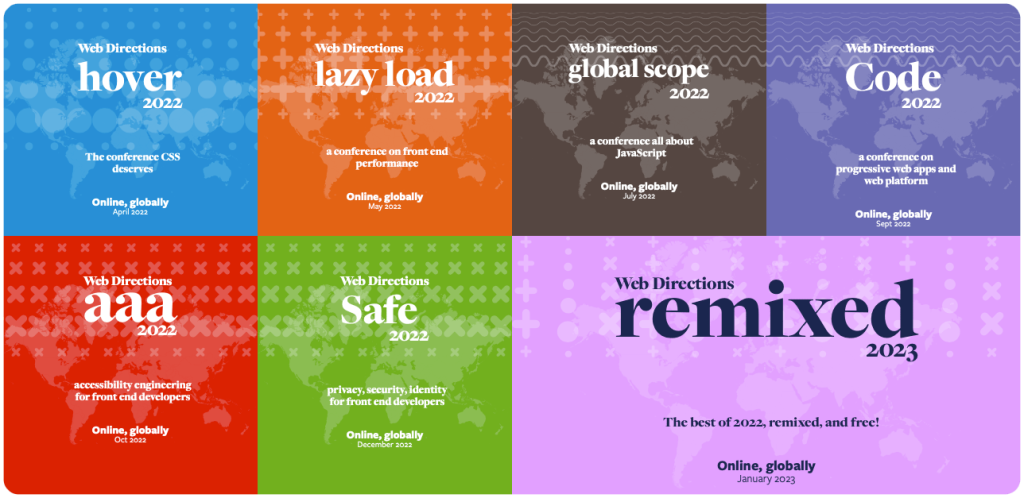Security, privacy and the Web–or why we can’t have nice things
I hear from my children there’s these things called “streaks” on social media (actually Ms just about 13 called out to Ms just turned 11 the other day “streaks aren’t a thing any more”), a game based dynamic for increasing the stickiness of social media (it’s also a useful technique for positive habit forming) so I’m this week on a streak of 2 for the newsletter.
Here’s the problem with writing this newsletter–the easy way is for me to go back through recent book marks, and try and articulate why you might find them interesting too, but then I open with something about streaks and the next thing I know I’ve written 4,000 words on streaks and habit formation, and addictive behaviours and social media, and I’ve mentioned my kids, and I promised myself I wouldn’t do that today.
So on with the links!
This is why we can’t have nice things
OK, so there are lots of reasons why we can’t have nice things. But when it comes to the Web platform, and the capabilities of the browser, the sort of capabilities native iOS and Android developers have at their disposal out of the box, we often wait for years as Web developers. And then sometimes we have these goodies made more difficult to work with (like the restriction of APIs like geolocation to HTTPS only, when it had been available over plain old HTTP for years). Or have them completely removed like the Ambient Light Sensor API that developers rather liked.
And then there are myriad device capabilities, like NFC, bluetooth, USB and many more that some browser developers have stated outright aren’t on the roadmap, though Project Fugu, an initiative from the W3C supported by Google, Microsoft, Intel and others aims to bring these capabilities to the platform. Kenneth Christiansen from Intel and the W3C TAG, who is no small way responsible for Project Fugu, spoke on at Code 2020 (currently this presentation is available for paying Conffab members, though you can read a transcript and expert keypoints for free!)) if you’re keen to know more.
Now, lots of folks frame Apple’s lack of support for these sort of features, which are available to any iOS app developer, as some kind of nefarious anti-web plot, to protect the App Store. Apple has always maintained that their decisions around granting, let’s face it, random anonymous executables (that is web pages) access to capabilities of the device could compromise the privacy and security of their users, something Apple have put front and centre in their messaging for a long time, much too Facebook’s current, let’s just say, annoyance.
There’s no little validity to Apple’s argument, as this recent exploit of the Web Audio API from the folks at Fingerprint.js demonstrates. While it doesn’t uniquely identify an individual browser, it provides another datapoint in fingerprinting (alongside things as seemingly as innocuous as the fonts installed on your system) and many others that make tracking you across the Web even in the absence of tracking pixels, and even in incognito mode more achievable than most people realise.
If you’re keen to know more about that, Marcos Caceres covered this in some detail at Code 20 as well (also available at Conffab), and we have a not yet quite announced Security, Privacy and identity focussed conference planned for late 2021 to cover many of these issues from a front end developers perspective.
Accessible Text Labels For All
One of Web Direction’s all time favourite speakers, Sara Soueidan, recently published Accessible Text Labels For All–
how to create more descriptive button (and/or link) text labels that improve the e-commerce experience for screen reader users, whilst making sure those buttons don’t fail WCAG success criteria. This, in turn, ensures that the buttons remain usable by another category of users: those using voice commands to navigate the Web. The concepts covered are applicable to all kinds of text labels, including form control labels
Sara Soueidan
No real exegesis required from me, it’s super valuable, and make sure you read it!
For the first time in years, someone is building a web browser from scratch
A few weeks ago a curious email appeared in my inbox–it was from Jared Newman, a journalist at Fast Company, asking if we could chat about a story he was writing, about a brand new web browser supposedly written from the ground up. Now, it’s been a long time since a brand new browser engine came along–even Webkit, progenitor of Chrome’s (and just about everyone other than Safari’s) Blink engine was a fork of KHTML while an organisation with as many resources and as much talent as Microsoft abandoned their own engine, to adopt Blink. Browser engines are expensive things to develop.
So, the question was, is it possible for a new browser engine to emerge? Even though the ambition for this browser is not to replace your current desktop of mobile browser, rather to be focussed on the use case of low powered and embedded devices like TVs (and no doubt fridges) it still seems a long shot. Jared put together a great article, speaking to a bunch of smart folks (and me) on the challenges and prospects for the browser.
I even get the last word–“Maybe it’ll open up the web to a whole new class of device, where we haven’t seen it”.
Bonus random tip
A few weeks back I learned about a podcast that could have been made just for me. It’s been running for decades (ok, so it’s a BBC Radio program of many year’s standing) where each week, fabled BBC personality Melvin Bragg talks with 3 experts about something interesting. It could be the photon, it could be an obscure 19th Century philosopher. You might think 80% of the episodes were so abstruse and unrelated to your life they’d have no interest. You would be wrong.
I am addicted, and with 900 episodes it should get me through many of the long drives I take each week ferrying my daughters to all kinds of sporting, artistic, educational and artistic endeavours. I have no idea what happens when I get through these.
In our time, subscribe now, start from the beginning, and become more knowledgeable and informed about things you may know well, and things you have never heard of.
In 2022 we have a whole series of events for Front End Developers
Across 2022 Web Directions is presenting our series of online conferences for front end designers and developers. Focussed deep dives, they go far beyond what you might expect from conference programs.
Priced individually from $195, or attend all 6, plus get access to our conference presentation platform Conffab for just $595, or $59 a month.
Great reading, every weekend.
We round up the best writing about the web and send it your way each Friday.

